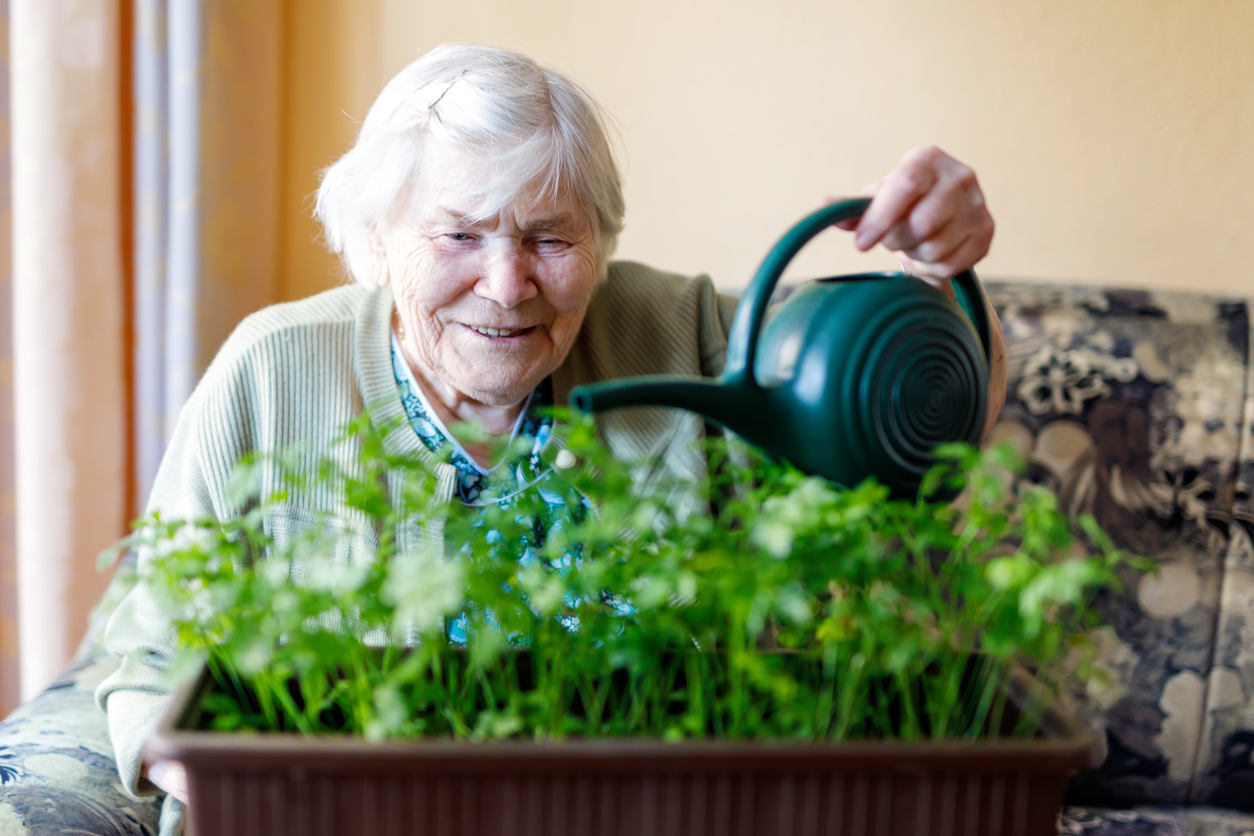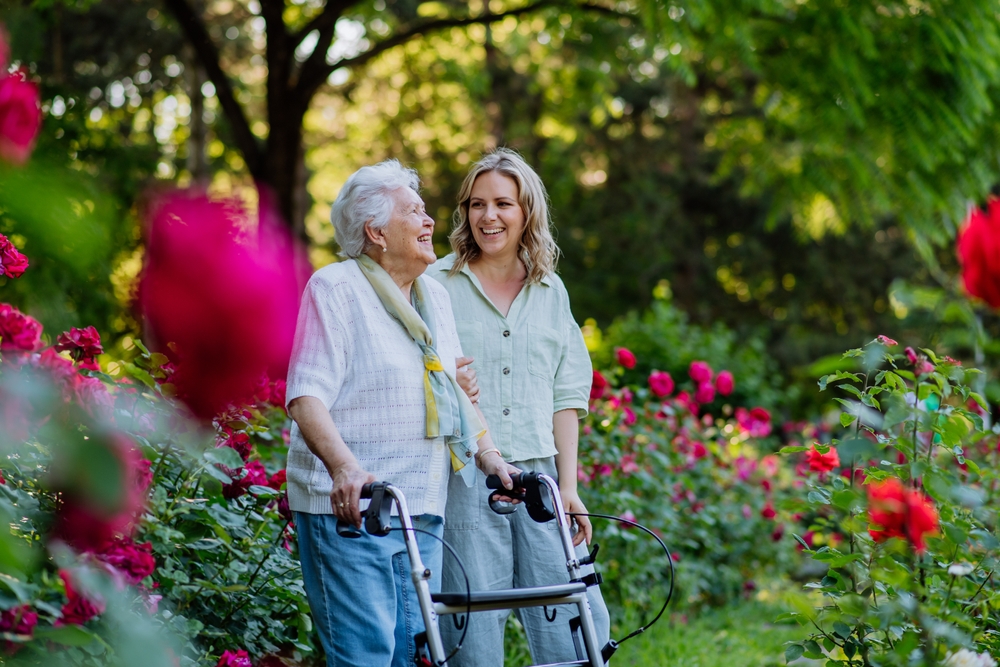1. They Move More, But Not in the Way You Think

Centenarians aren’t necessarily running marathons or lifting heavy weights in the gym. Instead, they incorporate natural movement into their daily lives. They walk everywhere, tend to their gardens, do household chores, and stay on their feet more often than they sit. This consistent, low-impact activity keeps their bodies strong and flexible without the stress of extreme exercise. Studies have shown that people in longevity hotspots, like Okinawa in Japan and Sardinia in Italy, don’t even think of movement as “working out”—it’s just part of their daily rhythm.
What’s surprising is that they don’t obsess over fitness trends or track their steps on a smartwatch. They simply live in a way that keeps them moving naturally. Many centenarians also prioritize posture and breathing, which helps with circulation and muscle tone as they age. Their secret is so obvious, yet so overlooked: the key to longevity isn’t found in an expensive gym membership but in daily habits that encourage the body to stay active and engaged.
2. They Eat, But Never Too Much

Centenarians aren’t following strict diets or counting calories, yet they naturally practice portion control. Many of them follow the principle of eating until they are about 80% full, a habit known as “Hara Hachi Bu” in Okinawan culture. This simple approach prevents overeating and allows the body to process food efficiently without being overloaded. It also encourages mindful eating—paying attention to what’s on the plate rather than mindlessly consuming food in front of a screen.
They also eat real food—whole, natural, and mostly plant-based meals filled with vegetables, legumes, nuts, and healthy fats. Meat is more of a side dish than the main course, and processed foods are rare in their diets. Instead of obsessing over restrictive eating plans or the latest health fads, they focus on balance and moderation. The biggest secret? They enjoy their meals, often sharing them with friends and family, which adds another layer of happiness and health to their daily lives.
3. They Stay Social, Even When Life Gets Lonely

One of the most overlooked secrets of long life isn’t just about the body—it’s about the heart and mind. Centenarians have strong social connections, whether through family, friends, or community groups. They engage in daily conversations, share meals, and stay involved in their local culture. This social interaction isn’t just about avoiding loneliness; it actually reduces stress, keeps the brain engaged, and provides emotional support during tough times.
What’s truly fascinating is that many of them don’t even realize this is a key factor in their longevity. They don’t force themselves to socialize—it’s simply woven into their way of life. They check in on neighbors, participate in religious or cultural activities, and prioritize relationships over material wealth. Having a strong sense of belonging gives them purpose and a reason to wake up each day, which contributes significantly to their overall well-being.
4. They Prioritize Rest, but Not Just Sleep

Centenarians understand the value of sleep, but they also recognize that rest is about more than just getting eight hours at night. They take naps, allow themselves downtime, and don’t push their bodies past exhaustion. Many follow natural sleep rhythms, waking up with the sunrise and winding down as the evening sets in. Unlike modern lifestyles that prioritize productivity over rest, they embrace relaxation as a necessary part of a healthy life.
What’s surprising is that they don’t necessarily have perfect sleep hygiene. Some take short afternoon naps, while others simply find ways to pause throughout the day. Their ability to manage stress is a major factor—many have learned not to worry about things they can’t control. This ability to relax, whether through meditation, prayer, or simply sitting in silence, helps reduce cortisol levels and keeps their hearts and minds in balance. The secret is so simple: slow down, rest when you need to, and let go of unnecessary stress.
5. They Have a Sense of Purpose That Never Retires

One of the most striking similarities among people who live to 100 is their deep sense of purpose. They wake up every day with a reason to keep going, whether it’s tending a garden, teaching younger generations, or engaging in a lifelong passion. Many centenarians never fully “retire” in the traditional sense—they might stop working a job, but they continue to contribute to their communities in meaningful ways. Having a purpose gives them a reason to stay mentally and physically active.
This strong sense of purpose has a profound effect on their health. Studies have shown that people who feel needed and valued tend to have lower rates of depression and cognitive decline. They don’t see aging as a slow decline but as an opportunity to continue growing and giving. Their secret is simple but powerful: stay curious, stay engaged, and always have something to look forward to.
6. They Laugh, Love, and Let Go of Grudges

Centenarians are often happy, and it’s not just because they live long lives—it’s because they know how to enjoy life. They laugh often, find joy in the small things, and don’t hold onto negativity. Many have endured hardships, including war, poverty, and personal loss, but they don’t dwell on the past. Instead, they focus on what they can control: their attitude and their relationships.
Forgiveness plays a huge role in their emotional well-being. Rather than carrying grudges or resentment, they choose to let go and move forward. This emotional resilience not only makes life more enjoyable but also has real physical benefits, reducing stress and inflammation in the body. Their secret is one of the most obvious yet hardest to practice—happiness isn’t about avoiding hardships, but about choosing to find peace and joy despite them.


